CDM Strikers Will Fight Myanmar Junta Until the End

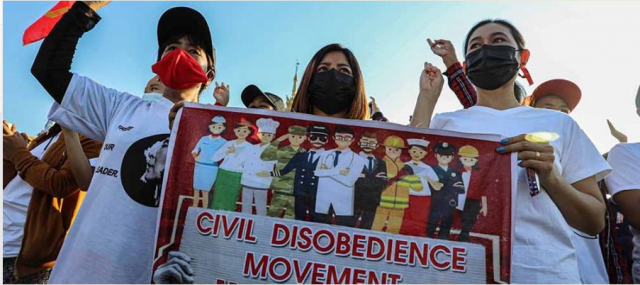
Anti-coup protesters call on civil servants to join the Civil Disobedience Movement.
It has been over a year since Myanmar’s military seized power in a coup from the democratically-elected government, rejecting the result of the 2020 general election in which the National League for Democracy Party won an overwhelming majority.
The coup prompted widespread protests across the country, and civil servants from various sectors including health and education came out on strike to join the wider Civil Disobedience Movement (CDM), almost bringing the administrative mechanism of the military regime to a halt.
In response, the junta has detained and dismissed striking government employees, as well as issuing arrest warrants for some of them, forcing many to go into hiding.
Some have returned to work due to pressure from the regime, but many civil servants are still on strike in defiance of military rule. Just over one year since the February 1 coup, some of the CDM strikers talked to The Irrawaddy about why they continue to defy the military regime.
Professor Dr. Khin Maung Lwin
Rector, Mandalay University of Medicine
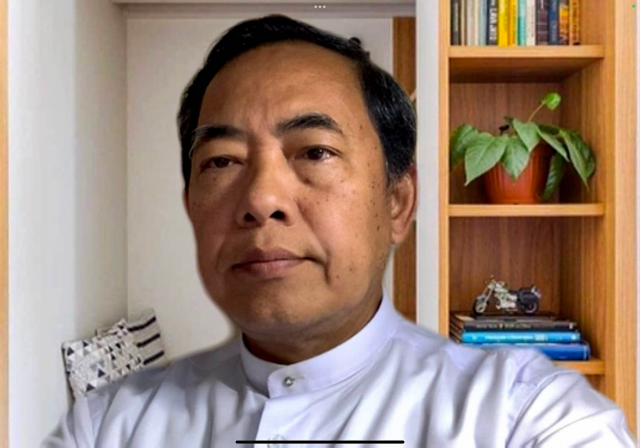
It has been one year since the military regime unlawfully took control of Myanmar. We joined the CDM because we don’t want to be enslaved by the military dictatorship, and because we don’t like that it has unlawfully taken control of the country with weapons. We are intellectuals and we don’t want to be lowly academics who have to kneel down before military dictators. So we joined the CDM.
I promise that I will bravely continue to take part in the CDM until the military dictatorship is rooted out and a genuine federal democratic country is established.
Daw Yati Ohn
Lecturer, Government Technical Institute (Kale Township)
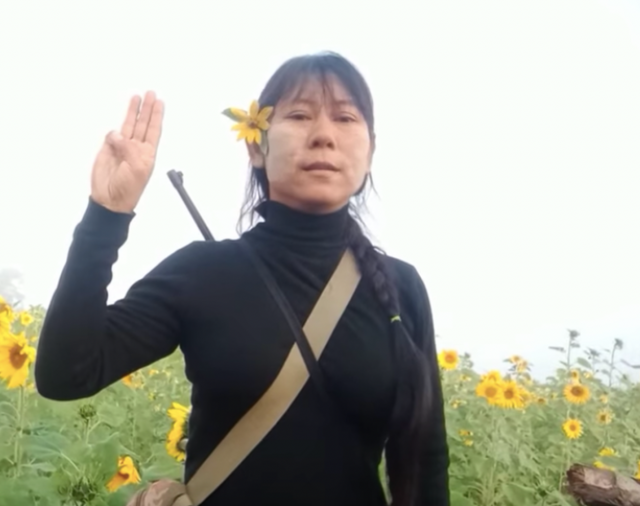
I am proud of myself for joining the CDM. No matter what difficulties lie ahead of me, I will never regret my choice. I am currently working for a mobile medical team which provides healthcare for resistance fighters and members of ethnic armed organizations at the frontline. The team also provides healthcare for civilians displaced by the fighting.
As I am a teacher, I have conducted two short term vocational training courses as part of the interim education program with the support of the Vocational Education Committee. And I am planning to conduct more courses in the future.
Ko Bo Bo
Striking police second lieutenant who now serves in the parallel Karenni (Kayah) State Police
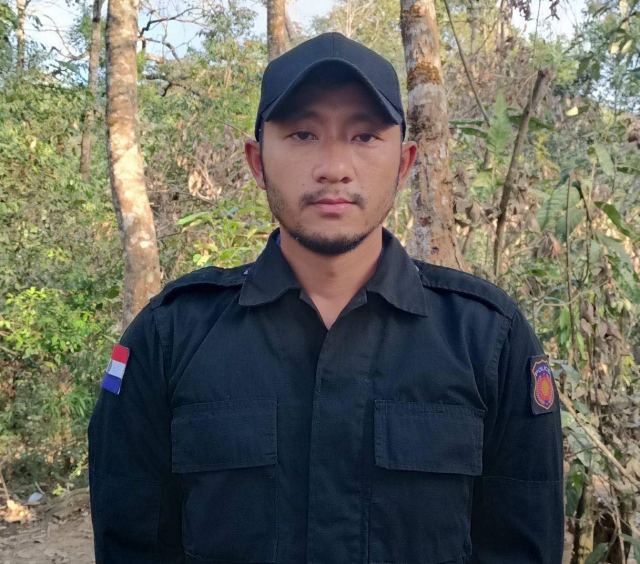
I don’t regret joining the CDM. There are many policemen that have joined the CDM in Karenni (Kayah State). I was a little depressed in the early days after I joined the CDM. But I haven’t felt down since I joined the revolution. I am doing my fair share with the hope that the revolution will succeed.
I am not very satisfied with the progress of the revolution in the country as a whole. But I am very satisfied with the resistance in Karenni. People have joined the resistance and I am grateful to them. I respect the resistance groups that are fighting the regime. They are making more sacrifices than us. I would like to urge the people to help the resistance movement where they can until it succeeds.
Lin Htet Aung
Striking captain from the Myanmar military
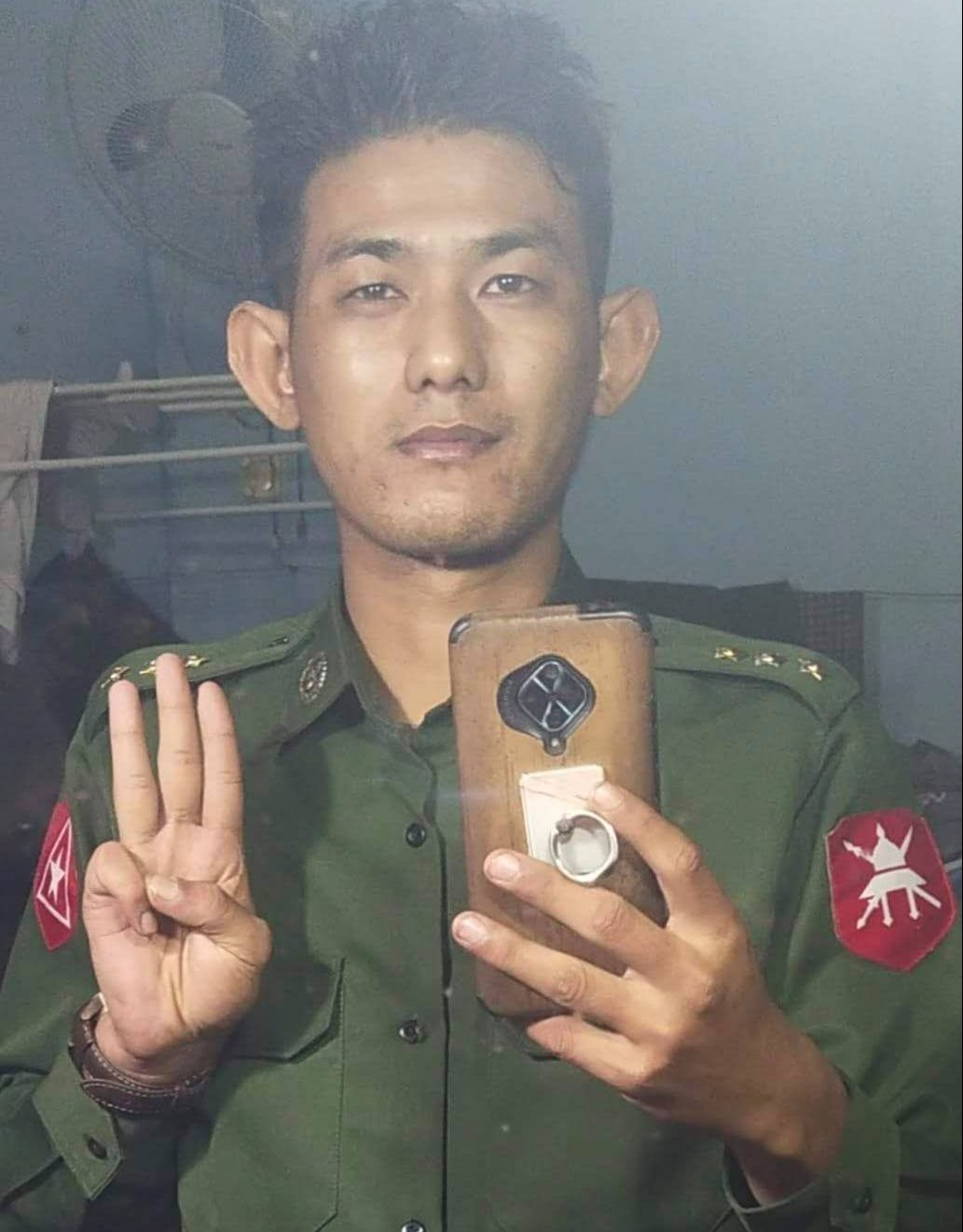
People have been repulsed by the military since it seized power. I stand by the people and I am doing what I can to fight back the regime. We have fought back with the strength of the people, and we have achieved certain progress in a short time.
It was the hardest time for me to desert the military. There were many difficulties when I deserted the military for the people. But I don’t regret it. I even take pride in myself that I have deserted the military regime. No matter how tough it will be, we won’t give up.
As more and more people have joined the resistance day by day, the military regime is in chaos. We will fight until the dictatorship is eliminated. I totally believe that the revolution will be successful with the strength of the people. Only when the dictatorship is wiped out will we be able to live our future freely. So we will fight until the end.
Striking employee
Locomotive workshop, Myanma Railways
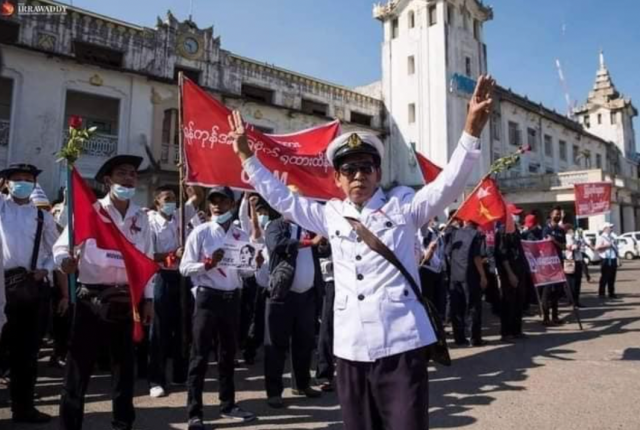
We have joined the CDM with the determination to root out the military dictatorship. Many striking civil servants are struggling now. Some private companies do hire people, but they don’t want to recruit striking civil servants because of threats from the military regime. So we can’t find jobs no matter what we apply for.
But we decided to continue fighting. We don’t want to return to work and to be labelled as non-CDM. I would like to urge my fellow striking government employees to keep going. The revolution must succeed. But I don’t want to blame those who have returned to work because of financial hardship. I am grateful to them that they have also done what they can. But I want to ask them not to betray us.
Striking doctor from Yangon
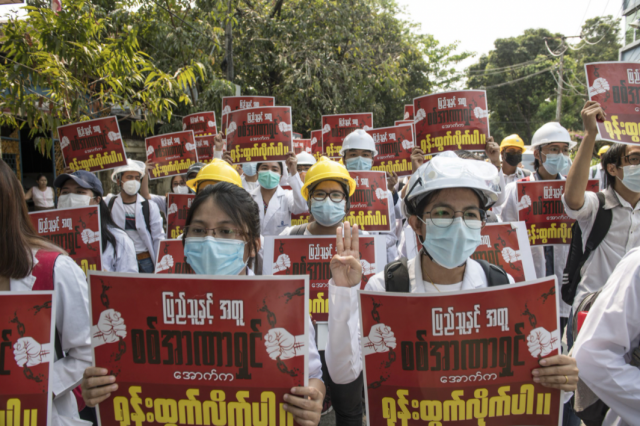
Speaking of the impact of the CDM, the military regime can’t find substitutes for striking technicians at schools and hospitals. Some hospitals have re-opened, but they are not operational. Because those who have returned to work [after initially joining the CDM] are lazy and lackadaisical workers. They don’t have any enthusiasm.
The CDM has had a noticeable impact on the military regime over the past year. It would have had more but for the junta’s financial resources. The fact that not only striking government employees but also the people are defying their orders has also had a significant impact on the regime. The fact that the regime is in chaos and losing face on the international stage shows that the CDM has had an impact.
We don’t know how long the revolution will take. But the remaining CDM strikers have decided not to return to work. If we return to work after enduring for more than one year, we will be scorned not only by our peers who returned to work earlier than us, but also by the strikers who are sticking with the CDM. So it is very unlikely that we will return to work.
Original Post: The Irrawaddy

